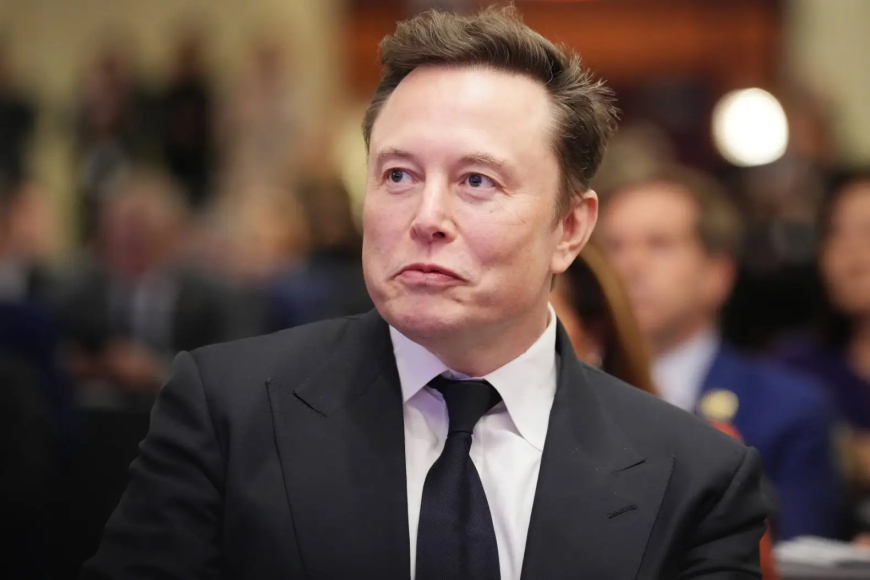Elon Musk’s xAI Sues Apple and OpenAI Over Anticompetitive Claims
Elon Musk’s xAI sues Apple and OpenAI, alleging anticompetitive practices harming X and Grok. A breakdown of the lawsuit, legal arguments, and AI ethics implications.

In a dramatic escalation of Silicon Valley’s growing battles over artificial intelligence, Elon Musk’s AI startup xAI has filed a lawsuit against Apple and OpenAI, alleging that the two tech giants have engaged in anticompetitive practices designed to harm Musk’s ventures, particularly his social platform X and its chatbot Grok.
The lawsuit, filed in federal court this week, accuses Apple and OpenAI of entering into exclusive agreements that effectively lock competitors out of key AI ecosystems. According to court documents, Musk’s legal team argues that Apple’s decision to integrate OpenAI’s models directly into its devices has created an “unfair market barrier”, leaving xAI and other players disadvantaged in distribution and visibility.
The Crux of the Lawsuit
At the heart of the complaint is Apple’s AI integration strategy, announced earlier this year. By embedding OpenAI’s technology into iOS and macOS, Apple users now interact with AI services primarily through ChatGPT-powered assistants. Musk contends that this partnership not only undermines consumer choice but also limits fair competition in one of the world’s fastest-growing technology sectors.
Court filings reveal Musk’s argument that Apple is essentially “picking winners and losers” in AI by leveraging its global hardware dominance. The lawsuit further claims that OpenAI is complicit in this arrangement, having abandoned its original nonprofit mission in favor of exclusive commercial alignments.
What This Means for X and Grok
Musk has heavily invested in xAI as a competitor to OpenAI, positioning Grok as a witty, less-censored chatbot embedded into X Premium subscriptions. However, without the same distribution advantages that Apple provides OpenAI, Grok faces an uphill battle for user adoption.
In statements made on X, Musk suggested that Apple’s moves are “blatantly anticompetitive” and that “no one company should be allowed to dictate the future of artificial intelligence.” The complaint emphasizes that Apple’s approach could stifle innovation by narrowing the field of viable AI competitors.
Legal Analysis: Breaking Down the Claims
Legal experts note that Musk’s lawsuit touches on familiar territory in antitrust law, echoing past battles involving Microsoft in the 1990s and more recent cases against Google. The key issues revolve around whether Apple’s integration of OpenAI constitutes:
-
Exclusive dealing — preventing consumers from accessing alternatives.
-
Market foreclosure — making it harder for new entrants like xAI to compete.
-
Consumer harm — limiting choice and potentially raising long-term costs.
While Apple maintains that its partnership improves the user experience, Musk’s attorneys are framing the case as a broader question of AI ethics and governance, insisting that no single alliance should dominate the direction of AI adoption.
For context, the Federal Trade Commission (FTC) has been increasingly active in scrutinizing Big Tech’s handling of AI partnerships (FTC Guidelines on AI and competition).
AI Ethics and Market Power
Beyond the courtroom, the case raises important ethical questions about how artificial intelligence is governed. Critics of OpenAI, including Musk, argue that the company has drifted from its mission of ensuring AI benefits all of humanity. Exclusive commercial partnerships, they claim, exacerbate risks of monopolization and bias.
Musk’s xAI has emphasized its mission to build transparent and trustworthy AI, positioning Grok as a counterbalance to what Musk views as politically skewed AI systems. Whether the lawsuit succeeds or not, it has already reignited debate over who should control the development of transformative technologies like large language models.
For a comparative perspective, similar discussions have emerged in the European Union, where regulators are working on the AI Act (European Commission AI Regulation Overview), which places heavy emphasis on fairness, competition, and accountability.
Potential Impact on Shareholders and Consumers
If Musk’s lawsuit gains traction, it could have significant consequences for Apple, OpenAI, and the broader AI market. Investors are watching closely as a ruling against Apple might force the company to loosen its grip on AI integration, opening space for competitors like xAI.
For consumers, the case could determine whether future devices come with multiple AI choices, much like past rulings forced web browsers and search engines to diversify default options. For shareholders, analysts warn that prolonged litigation could introduce market uncertainty and affect revenue forecasts tied to AI expansion.
The Road Ahead
As the legal battle unfolds, industry insiders anticipate months of filings, counterclaims, and potentially settlement negotiations. Regardless of outcome, Musk has succeeded in shining a spotlight on the intersections of AI, ethics, and market dominance.
The lawsuit underscores a broader truth: as AI becomes embedded in every device and service, questions of ownership, access, and fairness will shape not just competition but society itself.











